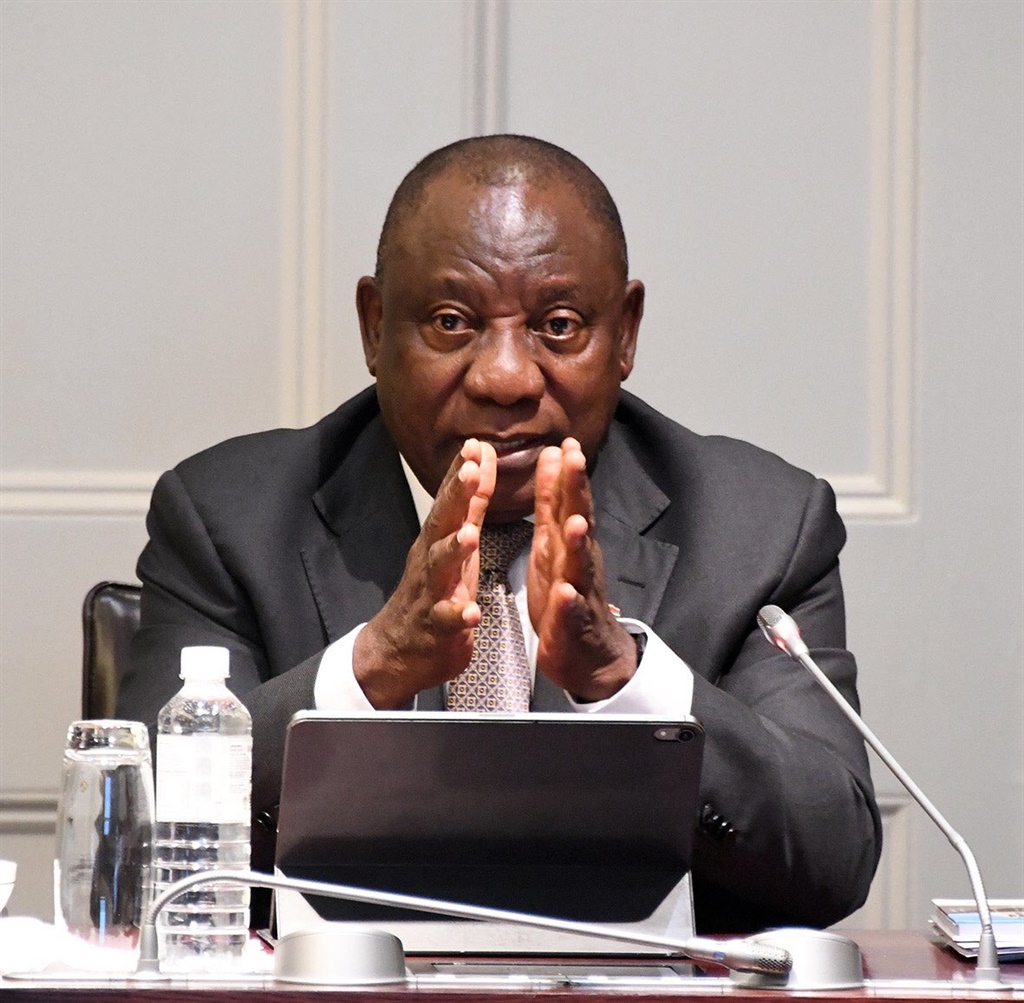


President Cyril Ramaphosa ((GCIS))
- President Cyril Ramaphosa has signed into law legislation that requires political parties to make their financial records public.
- One political analyst says the Promotion of Access to Information Amendment Act is bad news for parties.
- Civic organisations have hailed the legislation as “progressive”.
South Africa’s fractious political landscape is in for a shake-up. President Cyril Ramaphosa has signed into law legislation that will require political parties and independent candidates to record the names and details of their donors and make financial records available on a quarterly basis.
The act also requires political party leaders and independent candidates to keep record of any donation exceeding the prescribed threshold in any given financial year.
Currently, the threshold is donations exceeding R100 000.
Political analyst Ralph Mathekga said the move was good news for voters.
“This gives voters the information that they would ordinarily not know. As a voter, you can now decide who to vote for based on more than just emotions. We can, for instance, see where a party’s interest is when just looking at its donors,” he said.
READ | ANC on party funding: ‘We are destroying one another through influence of money’
Mathekga said the legislation is the beginning of massive changes.
“This is bad news for parties. They have another mechanism that is zooming in on its operations. We don’t know how things will change, but it certainly will change,” he said.
According to the new legislation, political parties will be required to record the identity of the persons or entities who make donations, make the records available every quarter and keep the records for at least five years.
DA federal finance chairperson Dion George said the DA will comply with the legislation although it does not support it.
“The idea of political donations is to promote democracy. It does not do that when donors become concerned that donations to an opposition party could compromise their ability to do business with government and become reluctant to donate. The current political environment in South Africa is such that publication of donations does not advance democracy as it was intended to do,” George said.
Non-profit organisation My Vote Counts spokesperson Sheilan Clarke said voters are a step closer to knowing who funds the parties they vote for.
“The political party funding bill and the Promotion of Access to Information Amendment Act (PAIA) need to work together. The one cannot work without the other. This move by the president will now give voters the power to make informed decisions on who to vote for,” she said.
In 2018, the Constitutional Court ruled voters have the right to be informed about the private funding of political parties.
ALSO READ | IEC will ‘spare no effort’ to ensure Party Funding Act in place before 2021 local govt elections
Chief Justice Mogoeng Mogoeng confirmed a Western Cape High Court ruling, which found that the PAIA was unconstitutional, because it did not provide for the disclosure of information pertaining to the private funding of political parties.
He also declared that information on the private funding of political parties and independent candidates was essential for the effective exercise of the right to make political choices and to participate in elections.
Meanwhile, Ramaphosa also signed into law the Independent Police Investigative Directorate Act, which gives powers to Parliament to suspend or remove the head of the police watchdog Ipid.

